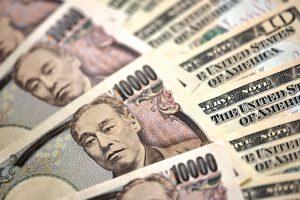BLOOMBERG
The market for yen bonds from global firms is hotter than it’s been in years, providing money managers with an oasis as rates volatility soars. Investors have scooped up yen debt from issuers outside Japan, fueling the busiest July since 2018.
Deals have included Canada’s Toronto-Dominion Bank, Korea Investment & Securities Co and France’s BPCE SA, which priced the biggest institutional offering since 2019 in the Samurai market. That’s brought the tally since the start of the fiscal year on April 1 to ¥1.44 trillion ($10.2 billion), the most in five years. And there’s more in the pipeline: Korean Air Lines Co plans to issue a yen note, while that nation’s government intends to sell its first yen bond in Japan later this year.
The securities on average are outperforming their local peers, when all yen corporate notes have made 1.2% so far this year, the best returns for that period since 2012.
That’s all helping burnish the asset class at a time when rates markets are signaling expectations that the Bank of Japan (BOJ) may need to tweak policy as inflation remains above its target, even as Governor Kazuo Ueda has repeatedly made the case for maintaining monetary stimulus. Still, BOJ officials see little urgent need to act on the effects of yield curve control for now, people familiar with the matter said.
Another appeal is wider spreads compared with Japanese issuers, to compensate for local investors having less analysis at their fingertips on the foreign borrowers. That’s despite the companies often having comparable or better ratings. “Overseas yen bonds are a sector that have a larger spread cushion than domestic notes,†and so would be less affected by any change to YCC, said Haruyasu Kato, a fund manager at Asset Management One.
Yen assets have contended with volatility recently, with the Japanese currency surging and the 10-year government bond yield moving toward the BOJ’s ceiling. But through it all, overseas issuers have kept tapping the market and bankers see no let-up ahead. “Momentum to tap the yen market is strong as spreads are relatively stable at a low level,†said Masahiro Koide, joint head of the products business division at Mizuho Securities Co, the largest underwriter of overseas yen bonds in 2023. But if the BOJ were to tweak its yield-curve control, causing a jump in yields, that may keep investors on the sidelines for a period, he said.
 The Gulf Time Newspaper One of the finest business newspapers in the UAE brought to you by our professional writers and editors.
The Gulf Time Newspaper One of the finest business newspapers in the UAE brought to you by our professional writers and editors.
